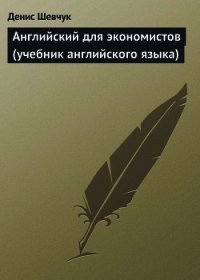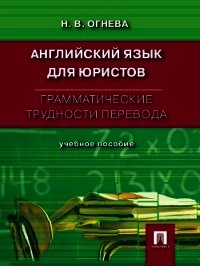Английский язык: самоучитель - Шевчук Денис Александрович (читать книги онлайн бесплатно без сокращение бесплатно txt) 📗
Language focus 2
Modal verbs
Модальные глаголы
6. Complete the sentences.
Дополните предложения.
Should the clients.................................................?
We are to............................................................
They will have to...................................................
Did you have to....................................................?
They were to........................................................
May I...............................................................?
You shouldn’t......................................................
They won’t be able to.............................................
Could you..........................................................?
You ought to.......................................................
Is he to..............................................................?
He had to............................................................
We didn’t have to..................................................
Will they have to..................................................?
You mustn’t........................................................
7. There is one mistake in each sentence. Find and correct it.
Найдите ошибку в каждом из данных предложений.

8. Answer the questions.
Ответьте на вопросы.
1. When do we have to turn down the lights?
2. Should you store potatoes on the top floor?
3. Why should you set the alarm clock?
4. Will you have to use the bedside lights?
5. When are you to order new machinery?
6. What home equipment mustn’t your children use?
7. What will you have to do with a hole in the roof?
8. Why did you have to buy a new coffee pot?
9. Will you have to use flash memory tomorrow?
10. What hotel rooms shouldn’t you book?
11. When will you be able to learn to cook?
12. Could you move freely in the flow of traffic?
9. Translate the sentences.
Переведите предложения.

READINGAND SPEAKING PRACTICE
1. Answer the questions.
Ответьте на вопросы.
1. What home equipment do you use most often?
2. How does a mousetrap work?
3. Which things in your flat are rectangular?
4. Which things in your office work on electricity?
5. Is there anything wrong with your office equipment?
6. What is wrong with the home equipment?
7. How can you book a hotel room?
8. In which hotel did you last stay? Was it comfortable?
9. Which type of accommodation do you prefer: bed and breakfast, full board, all inclusive? Why?
10. What equipment do you normally find in a hotel?
2. Read these sentences. Underline the words from the Active Vocabulary. Close your eyes. How many sentences can you recollect?
Прочитайте предложения и подчеркните новые слова урока. Закройте глаза и постарайтесь вспомнить как можно больше из данных предложений.
1. Put these things into the middle drawer next to the coffee maker.
2. Don’t forget to switch off the lights.
3. To take a photograph you should press the button on the right.
4. I’ll have to turn down the central heating.
5. How does this fax machine work?
6. There is a thermostat here on the wall.
7. The grain will be stored on the top floor.
8. The mill is powered by this device.
9. What things are made from wood?
10. The hotel room wasn’t comfortable enough.
3. Read the dialogues and try to learn them.
Прочитайтедиалогиипостарайтесьихзапомнить.
I
Karl: Thank you very much for your help. I also want to give you these brochures for the meeting tomorrow morning.
Julia: Thank you.
Karl: And I have a present for you.
Julia: A present? For me?
Karl: Yes. Here it is.
Julia: What’s this?
Karl: It’s a CD player. It has a radio, too.
Julia: Thank you, Carl. And how does it work.
Karl: Look there is a switch. It has two positions: one for the player, and one for the radio.
Julia: Oh, I’ve got it. And where do these headphones go?
Karl: Here.
Julia: I see.
Karl: And I want to give you this CD about German cookery. Perhaps, you’ll like it.
Julia: Thank you, Carl.
II
Rachel: Rita, could you help me? I don’t know how this fax machine works.
Rita: It’s easy. I’ll show you. First, put the letter in here. Like this. OK?
Rachel: Yes.
Rita: Next, press this button, the button with «TEL».
Rachel: Does it stand for «telephone»?
Rita: Yes. Then, type in the fax number. What is it?
Rachel: 0279450767.
Rita: The, wait for the message «on line». Here.
Rachel: Yes.
Rita: And that’s it. Got it?
Rachel: I think so. May I try now?
Rita: Sure.
4. Make up a dialogue putting the sentences in the right order.
Составьте диалог, расположив предложения в логическом порядке. Инсценируйте диалог.
Carl in the hotel

7. Read this text.
Прочитайте текст.
A flour mill
Mildred Cookson works as a miller at an old water mill on the Thames. This water mill was built two centuries ago, but it is still working. Here, the grain is turned into flour. And flour is used to make bread and cakes.
Mildred is telling us how the mill works.
The water mill is actually powered by this water wheel here. The river water flows and turns the wheel. The water wheel in turns moves all the machinery inside the mill.
The grain is brought to the mill in sacks. Mildred has to get it up from the ground floor up into the roof. So, the grain is stored on the roof.
Then, when the water wheel starts up, the grain flows down from the top floor to the stone floor. On the stone floor there are millstones, and the grain flows into the millstones.
The set of millstones without the covering on involves the top stone that goes round and the bottom stone that doesn’t move. The grain goes into the middle of the millstones, in between the top and the bottom ones. It is turned slowly into flour as it goes to the edge. Then, it is pushed down a hole in the floor down to the flour bags below.

ASSIGNMENT 6
LESSON 6
PART 1
Choose the correct word.
Выберите подходящее слово.

PART 2
Find an extra word in each line.The first is done for you.
Найдите лишнее слово в каждой строке. Первая строка дана как пример.

PART 3
Choose the correct variant.
Выберите правильный вариант.


LESSON 7. Getting around town




